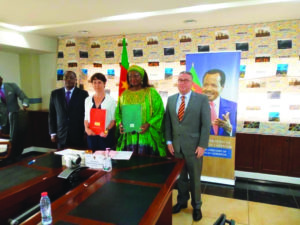Already established in Cameroon, the group wishes to diversify its activities in the country. Quentin Boulanger, in charge of international development at setec énergie environnement, explains the project financed by FASEP (Private Sector Study and Development Fund), dedicated to the establishment of waste sorting infrastructures and the optimisation of waste management in twenty or so medium-sized towns in Cameroon.

The FASEP is a tool to assist the international development of French companies, through a grant from the French government to finance feasibility or demonstration studies of green and innovative technologies. This allows the company undertaking the study to demonstrate the efficiency of their methods and to acquire a reference in the country of the partner. The project involves some twenty medium-sized towns and is therefore strategic for the Cameroonian state. As a member of an entrepreneurial community, we were involved in another project to develop a demonstrator of modular sorting lines, small units that are quite simple to use. This project has shown a widespread need for the structuring of sectors and the creation of infrastructures in small towns. It emphasised the determination of these municipalities, which currently do not have the means to finance the establishment of a genuine waste sorting system. This challenge is what our FASEP project tackles. We started by defining the target territories for this project. There was a strong need for regional centres, some twenty towns with more than 50,000 inhabitants, spread throughout the country, including those in security risk areas. To include these at-risk areas, which was one of the requests of the Cameroonian beneficiary ministry, we contacted the United Nations Habitat programme, which is already working in these areas. We have negotiated a partnership with UN Habitat so we can benefit from their local network in these territories. As well as developing infrastructure, the project aims to develop local waste sorting facilities, which will create jobs and help to improve the living environment of the inhabitants. This project will therefore offer real opportunities for socio-economic development smaller cities. quentin.boulanger@setec.com